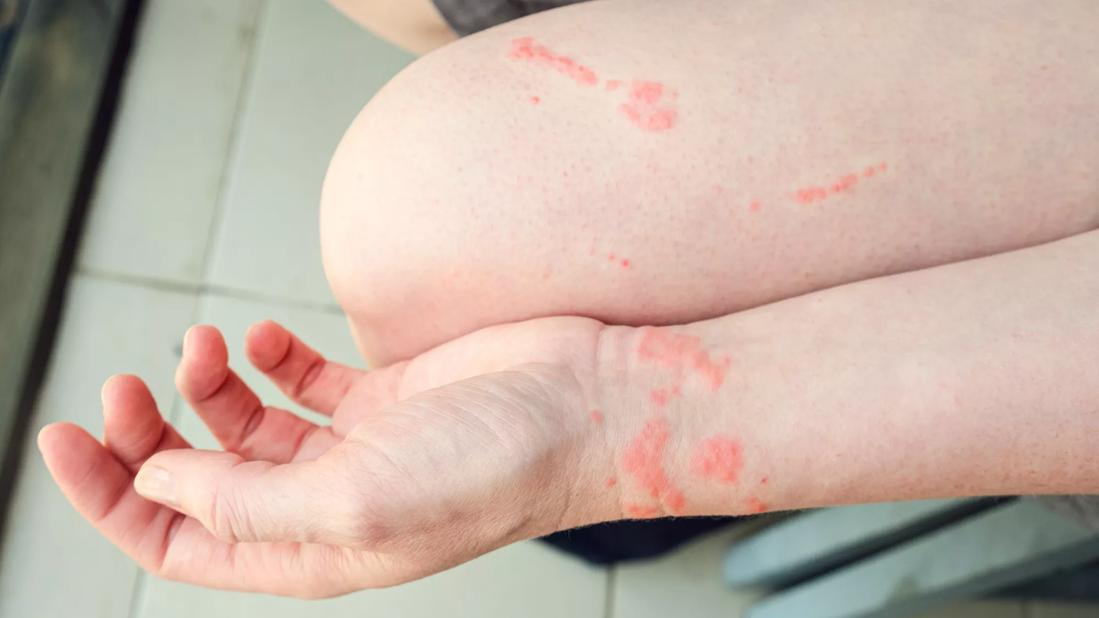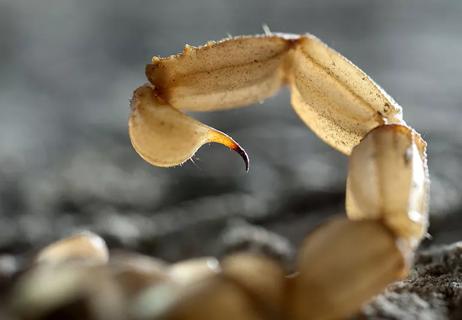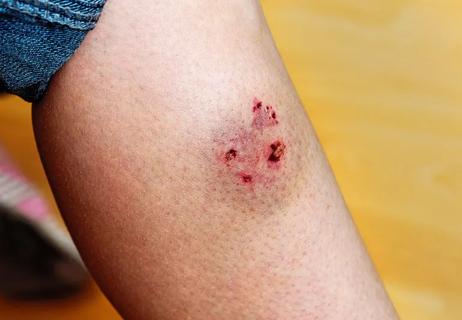This persistent myth isn’t true and can actually cause more pain than relief

Look, we all love natural home remedies that offer a quick and easy solution. But peeing on a jellyfish sting is not something you should ever do. In fact, urine can actually make matters worse by increasing your level of pain. It can also provoke jellyfish stingers to release even more venom than if you were to rinse the sting with good ol’ seawater.
Advertisement
Cleveland Clinic is a non-profit academic medical center. Advertising on our site helps support our mission. We do not endorse non-Cleveland Clinic products or services. Policy
Plenty of studies have shown peeing on a jellyfish sting does nothing to solve the situation. So then, what does? Emergency medicine specialist Thomas Waters, MD, explains what you should do if you get stung by a jellyfish this summer.
There are more than 10,000 species of jellyfish around the world. Of those, only about 100 species are responsible for the majority of human jellyfish stings. But that number has been increasing steadily over the years as jellyfish populations continue to grow and thrive in greater numbers as they migrate to more populated areas. All of this has led to an increase in jellyfish stings and people looking for a quick solution for when it does happen.
But the long-time mythical cure of peeing on a jellyfish sting to decrease the pain and help remove its stingers is just that — a myth. It’s been used as a convenient plot twist in sitcoms like Friends and you’ll find it riddled among popular Reddit threads where people have tried it in the past. But peeing on a jellyfish sting is more of a problem than a healing salve and here’s why.
Jellyfish are umbrella-shaped gelatinous blobs with long trailing tentacles that propel themselves through the water with a pulsing, rhythmic motion. Each tentacle is covered with thousands of specialized “stinging” cells. And inside each cell, there is a harpoon-like barb filled with toxic venom. When these stinging cells are impacted by an outside source or they’re stimulated by the slightest touch or chemical imbalance, their poisonous barbs explode out of the cell, injecting their venom into whatever it comes into contact with.
Advertisement
This can happen in the water or on a beach. And even touching or rubbing up against a jellyfish after it’s already dead can result in the activation of these poisonous barbs.
So, if you get stung, it hurts. It hurts a lot.
Somewhere along the way, a theory grew that peeing on a sting could neutralize the venom and make the intense pain go away. The logic is based upon the idea that ammonia, urea and other compounds found in your urine can break down the stinging cells and get them to detach from your skin.
But the truth is that your urine is made up of mostly water, so there isn’t enough ammonia and other chemicals to have the desired effect of stopping the stinging cells and their barbs. And because these stinging cells are responsive to any external stimuli, the velocity of urine is likely to agitate or move the barbs, causing more venom to release into your skin. And because these stinging cells can also be responsive to chemical imbalances, fresh water-based urine can actually increase a venomous response.
“Jellyfish stings are painful enough without amplifying the symptoms,” warns Dr. Waters. “You might mean well by peeing on a sting, but putting the wrong substance on it can really make things worse.”
If peeing on a jellyfish sting isn’t an option, what is? Well, try not to panic, keep your towel on and follow these steps:
Advertisement
While jellyfish stings are quite unpleasant, most don’t require attention from a doctor. Moon jellyfish, for example, are quite common on the coasts of North America and Europe but only cause a mildly irritating reaction. Sea lice and seabather’s eruption are similar in that respect and tend to cause stings in areas covered by your bathing suit.
In most cases, stings typically improve within a few hours. Sometimes, a rash with red, purple or brown splotches may linger for a few weeks and you may also develop some scars. But as long as you remove the stingers quickly and carefully, submerge the area in seawater or vinegar and rinse off with hot water, and you don’t experience any new or lingering symptoms beyond 24 hours, you should be in the clear
In any case, wherever you find yourself stung by a jellyfish, urine should never be a solution that you turn to. If you do find yourself in need of medical attention and are experiencing serious symptoms like shortness of breath, chest pain or heart-related issues, contact emergency services right away.
Advertisement

Sign up for our Health Essentials emails for expert guidance on nutrition, fitness, sleep, skin care and more.
Learn more about our editorial process.
Advertisement

The risk of infection makes fast and thorough treatment critical

Poisons are inhaled, ingested or absorbed by your skin, while venoms are delivered by bites and stings

An urgent care physician weighs in on what to do

Infection is the biggest danger

A type of high-intensity interval training, boxing can challenge your body and mind

It’s an emergency if the pain doesn’t go away, gets worse or you have other worrying symptoms

Your diet in the weeks, days and hours ahead of your race can power you to the finish line

You can improve your athletic performance over time by breaking up your workout regimen into focused cycles

Although it could be used as a moisturizer, this new trend is not recommended

Communicating clear limits helps protect your time, energy and emotional well-being

High cholesterol can be genetic, but testing and treatment can lower your heart disease risk